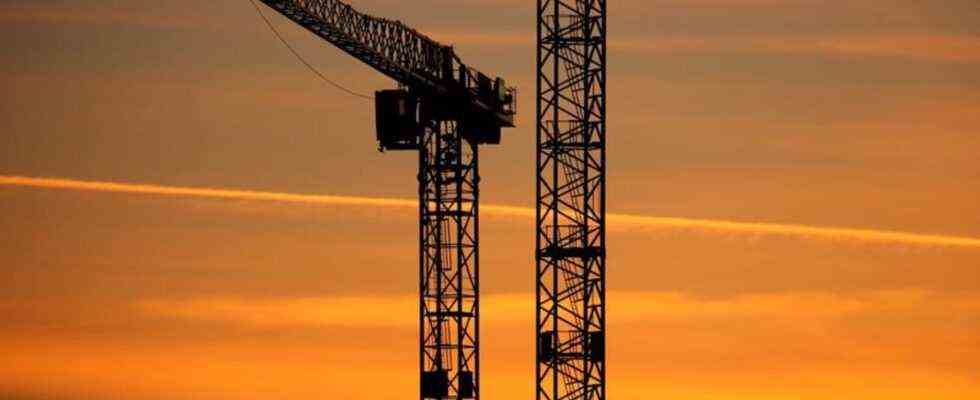Economic barometer
Ifo business climate falls for the fourth time in a row
The Ifo business climate continues to decline. Photo: Karl-Josef Hildenbrand / dpa
© dpa-infocom GmbH
Delivery problems are increasingly bothering companies. Dealers are also noticeably more dissatisfied. But not all industries complain about a bad business climate.
The mood in the German economy deteriorated again in October due to persistent problems in global trade.
The Ifo business climate, Germany’s most important economic barometer, fell compared to the previous month by 1.2 points to 97.7 points, as the Ifo Institute in Munich announced. It is the fourth decline in a row. Analysts had expected a somewhat more moderate decline to 98.0 points on average.
“Delivery problems make the companies to create,” said Ifo President Clemens Fuest. Capacity utilization in industry is falling. “Sand in the gears of the German economy is holding back the recovery.” Above all, the companies surveyed assessed the prospects as less favorable. Once again, the ongoing problems in the international trade in goods, most of which can be traced back to the corona pandemic, weighed on the mood.
In the manufacturing sector, companies are somewhat less satisfied with their current business development, according to the Ifo. In addition, expectations continued to deteriorate. As a result of the delivery bottlenecks, capacity utilization fell by 2.1 percentage points to 84.7 percent.
In the service sector, the business climate deteriorated again after the recovery in the previous month. The companies were much less optimistic about the coming months. However, they rate their current situation somewhat better, according to the Ifo researchers.
In trade, the index has fallen significantly, it said. Dealers are noticeably less satisfied with their current business. “In addition, pessimism will continue to grow with a view to the coming months. Here, too, delivery bottlenecks put a strain on the mood, ”emphasized the Ifo. In the construction industry, however, the business climate has improved again. Companies assessed their current situation somewhat better. In addition, the expectation index has increased for the sixth time in a row.
The deterioration is basically not a surprise, as other survey indicators such as the Markit purchasing managers’ indices had already indicated. The clouding over affected all areas examined with the exception of the construction industry. Among the service providers, ongoing business alone was rated somewhat better. This is likely to be a result of lower corona restrictions.
“The corona crisis has turned into a scarcity crisis,” explained Thomas Gitzel, chief economist at VP Bank. The material shortages weighed heavily on the industry. In addition, there would be price turbulence on the energy markets. “The massive increases in gas and electricity prices are becoming an economic risk,” warned Gitzel.
Economists are currently assessing the outlook for the current final quarter in particular as unfavorable. After presumably continued growth in summer, the risk of stagnation in autumn is high, said ING chief economist Carsten Brzeski. It is increasingly unlikely that German economic output (GDP) will reach its pre-crisis level this year.

